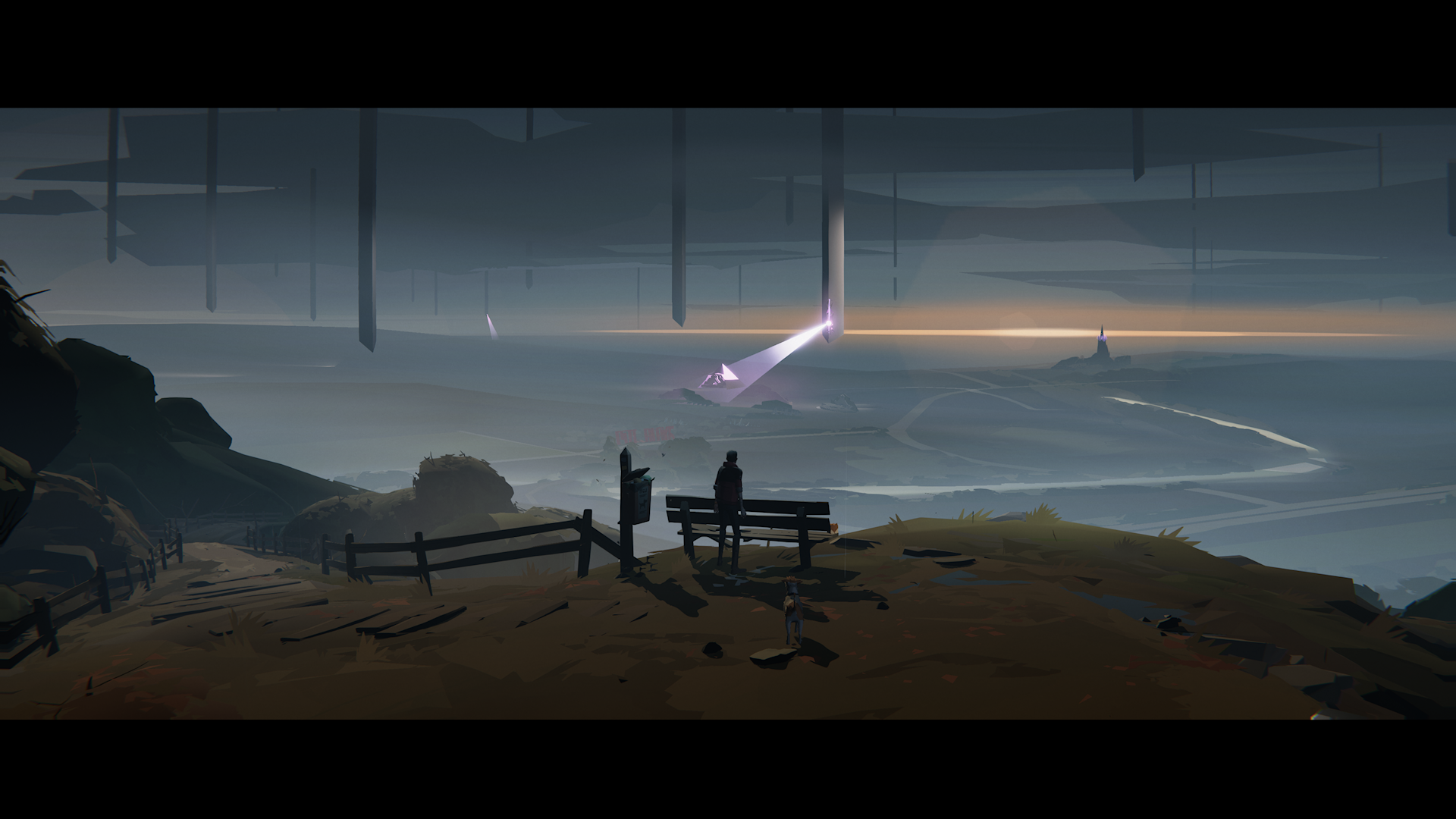The trailers for Somerville, JUMPSHIP’s first game following Dino Patti’s departure from Playdead, are odd. Patti’s prior studio was known for games that managed to pack a punch precisely because they were understated: with little context, players felt their way through inscrutable and terrifying environments where their avatar was constantly in danger, until, in the last act, something drastic shifts in the power dynamic. Somerville‘s trailers are high-intensity, heavy on the action, and dramatic in the same way an “alternative” summer sci-fi blockbuster might tease its story beats. Think M. Night Shayamalan’s The Happening, directed by Josh Trank.
As a rule, it’s never a good idea to judge a game – or any piece of media – based on its marketing. The assumption isn’t that marketing materials are lying, just that they are intentionally showing you low-context media to excite you into wanting to know more. They are meant to pique our curiosity by design. And Somerville‘s trailers certainly did this! I left each one wanting to know more. I was hype for this game to come out. And when it finally did, I downloaded it on day one.
Unfortunately, you can basically get the gist of Somerville from its trailers.
Somerville is loosely the story of a British man who touches crashed alien technology in the middle of an invasion and appears – to his family, at least – to die from that exposure. When he wakes up, he discovers he has actually absorbed some of that alien technology and can turn regular light sources into a weapon against the invasion forces. He must then make his way across treacherous countryside to reunite with his wife and child.
The reunion is brief, as one of the aliens shows up to defend him and is revealed to be from the government. It turns out we’ve been experimenting with this alien tech in an attempt to defeat the armada, and our man is the final key to unlock its full capability. In a baffling moment, our character is pulled into a quinjet while wife and kid are left behind to face a swarm of alien dog-spiders, unarmed. The end of the game takes a turn for the psychological, and there are apparently multiple endings depending on an inscrutable list of choices you make or don’t make throughout the playthrough.
If you’re worried about spoilers, don’t be: each of these details is in one of the several trailers for Somerville. All I have done here is put them into their proper order. I also haven’t given away the full ending I experienced out of some respect for the full story. All the bits I skipped over between start and end include our man falling into a sewer system and gaining more power from another downed alien; sneaking through a deserted music festival site while a monolith looks for him; and the process of actually arriving in and navigating through the town where his family ended up.
This is a puzzle-platformer with some intense elements. If you’ve played one of them, you know what that’s like. The controls are actually very similar to Playdead’s Inside, except Somerville‘s preferred direction of travel is right-to-left (it’s how you can tell the difference). Am I being too glib here? Maybe, but the ordeal of going from point A to point Z in this game is a tedious, uneventful slog broken up by a handful of puzzles that rarely elevate beyond mildly difficult to solve. When it comes to most game narratives, I’m happy to let the game sweep me along in the current of its narrative, but this game challenges that approach by being boring on the journey and baffling at the destination. Is it pretty? Yes. Speaking only on its visuals, Somerville shines. But what we see while playing often merely amounts to a faint vision of a better experience off in the distance.
Look, I don’t need to belabor this review: I was disappointed in Somerville. It felt unwieldy to play at times, it didn’t live up to the promise of its marketing, and narratively felt shallow. Should you play it? I’m not going to make that decision for you, but I will say that if you enjoy these kinds of games, you might find this experience lacking.





